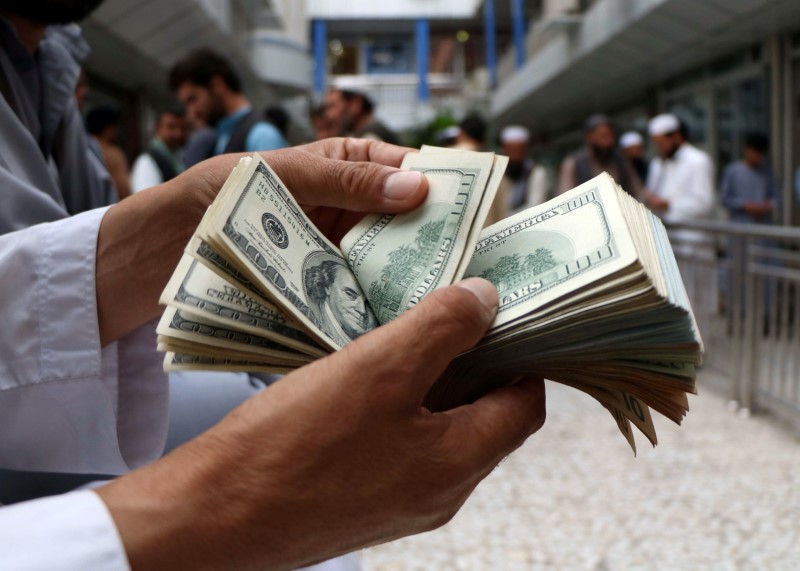By Gertrude Chavez-Dreyfuss and Herbert Lash
NEW YORK (Reuters) – The dollar climbed from more than three-month lows on Wednesday after data showing the U.S. economy grew faster in the third quarter than initially reported helped investors consolidate positions following four days of losses.
The greenback rose against the euro and an index of six major peers, but remained on track to post its biggest monthly decline since November 2022 on growing expectations the Federal Reserve will cut interest rates in the first half of 2024.
“Given how sharply the dollar has sold off the last few weeks, it’s only natural that we could be seeing a bit of profit taking,” said Paresh Upadhyaya, director of fixed income and currency strategy at Amundi US in Boston.
But markets are waiting to see whether Fed Chair Jerome Powell will let stand comments by Fed Governor Christopher Waller on Tuesday flagging a possible rate cut in the months ahead. The remarks sent U.S. bond yields and the dollar sliding.
“If the Fed believes that the markets misinterpreted his comments or feel uncomfortable to the degree that financial conditions have eased, there’s an opportunity with Powell to set the record straight” on Friday, Upapdhyaya said.
Powell is scheduled on Friday to participate in a fireside chat at Spelman College in Atlanta.
The dollar rose on news that U.S. gross domestic product increased at a 5.2% annualized rate in the last quarter, faster than the previously reported 4.9%. It was the fastest expansion since the fourth quarter of 2021, the U.S. Commerce Department said in its second estimate of third-quarter GDP.
Economists polled by Reuters had expected GDP growth would be revised up to 5.0%.
“The GDP data helped the dollar a little bit. Investment was a little stronger, and that’s a cyclical component,” said Erik F. Nelson, macro strategist at Wells Fargo in London.
Following the GDP data, futures increased bets of a rate cut starting in March to almost a 50% chance of easing, compared with nearly 35% late on Tuesday, the CME Group’s (NASDAQ:CME) FedWatch tool showed.
In late afternoon trading, the dollar index, which tracks the U.S. currency against six others, was up 0.22% at 102.84, set for its largest daily gain in a week. Earlier in Asia, the dollar hit its lowest since early August at 102.46.
The euro fell 0.17% versus the dollar to $1.0973, pressured by inflation data from Germany showing price growth slowed to 2.3% year-on-year in November from 3% in October. Inflation in Spain also slowed sharply.
The euro zone-wide inflation figure is due out on Thursday, before the Fed’s preferred measure of U.S. inflation, the personal consumption expenditures index, or PCE, is released.
The market’s fixation on inflation will likely shift to labor data as the degree of the economic slowdown takes precedence over the pace of decelerating prices, Upadhyaya said.
“Now the labor market is going be the big focus because it’s the statistic that could lead to a Fed pivot from a pause to a cut,” he said.
New Zealand’s dollar was last up 0.24% at US$0.6151, after the Reserve Bank of New Zealand held interest rates steady but warned further policy tightening might be needed. The currency had surged more than 1% earlier in the session to a four-month high of $0.6208.
Japan’s yen, which is particularly sensitive to U.S. bond yields, rose slightly on the day, with the dollar last down 0.09% at 147.30 after falling to a more-than-two-month low of 146.68 yen.
China’s onshore yuan finished the domestic session at 7.1246 per dollar, the strongest closing price since June 16. The dollar was last down at 7.1245.



